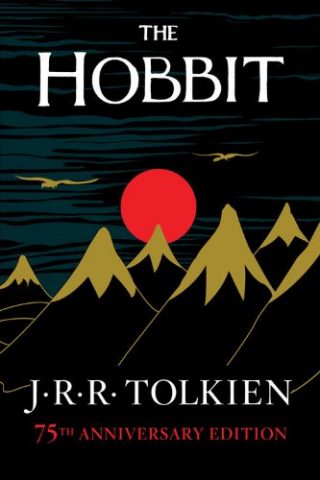Award Winning Author-B.R.A.G. Medallion Honoree
Negative reviews happen. Stories and styles are subjective, and sometimes a person with no business reading your book does so anyway—with catastrophic and infuriating results. Maybe the wrong reader was intrigued by the cover or the premise. Maybe the right reader had different expectations for the story? Or maybe, and this will on rare occasions be the case, the reader was inclined toward hostility and decided to victimize your work.
Unless you have a superhuman sense of self worth, a negative review, either articulate or gibberish, is going to leave a crater in your heart. Publication does, after all, expose it to bombardment.
Sometimes negative reviews can prove useful, identifying genuine flaws in a story: awkward or unnecessary plotting, excessive exposition, lazy characterization. Assuming your book is a living document, you can always correct errors you agree with in future editions. Even Tolkien revised his work after it was published—he rewrote large sections of The Hobbit (1937) and republished 14 years later (1951) to bring it in line with The Lord of the Rings.
Other, less savory reviewers take pleasure in ridiculing a book to provide temporary relief for some cloying psychological aberration. These reviews serve little purpose to few outside the reviewer. Such reviews are the product of “trolls” seeking attention, and the absolute worst and most tempting thing you can do is give it to them.
Regardless of the reason for a negative review, there are, as a rule, only two appropriate responses:
- Use the review to make your work better.
- Ignore the review.
Yes, that’s all.
You might pretend there is a special, third category in which you confront the reviewer, however justified you may be in correcting any appalling, obvious, and suspicious errors indicative of a lack of reading or understanding, but you are wrong. Please consult the list again. Note the list ends after the second option. This is not an error.
Whatever you do, do not engage. Yes, a sense of defeat and futility is natural when exerting all your reserves of self control, but keep in mind that in doing so you are averting greater and more calamitous consequences. There is almost no benefit to responding and your sense of gratification may come at the expense of your reputation. And there are certainly better places to spend that stockpile of emotion you’ve dammed up by not responding.
As much as you may dislike having your story questioned, a reviewer may put the same stock in their analytical ability. They might be wrong in your opinion, but from their perspective they are correct. Questioning someone’s judgment, no matter how civilly, almost never ends well. See: political dialogue at family gatherings with mixed beliefs.
In a universe of possibility there’s a chance you could find yourself in a reasoned discussion with the reviewer and a still slimmer likelihood exists that you will convince the reviewer they are in error, resulting in a revised and penitent review. Maybe you developed a rapport with the reviewer prior to reading the book, perhaps because they requested or you volunteered a review copy of your book. Perhaps, in the best-possible-case scenario, the reviewer is your mother.
Let’s assume, as will likely be the case for the vast majority of reviews you receive, the reviewer is not your mother. We can follow a simple algorithm using our current response options. Did the negative review make any valid points? If so, use the review to make your work better. If not, ignore the review.
In our era of internet outrage and self-righteousness (to which, I should point out, you too are falling prey by responding to a negative review) what’s more likely to happen is you will attract attention to yourself. Unflattering attention. Particularly if you meet hostility with hostility.
The internet is quick to brand argumentative authors defending their work, justly or unjustly. There’s even a resource for Authors Behaving Badly—it’s a blacklist you never want to find yourself on, unless you’re willing to decouple completely from a name, and adopt a pseudonym and a more tolerant personality. Those with black histories of bad encounters with reviewers should serve warning to the disaster that can result when an author decides to be temperamental and combative rather than allow readers to read and assess an author’s work of their own accord.
There is a long, long, long tradition of negative reviews for popular writers, so don’t feel criticism, harsh and upsetting criticism, is unusual. Some people just don’t, won’t, or can’t get it. Moby Dick was in many cases reviled upon release. You need only do a search on Authors Criticizing Authors to discover writers frequently had harsh words for one another. You might take a sadistic delight in reading the articulate barbs exchanged in these inter-author feuds.
At the same time, I can promise you that, unless you are someone of a mien like Moses Hadas or Gore Vidal, who was both a brilliant writer and elegant troll, you’re not going to enjoy the experience. If you’ve ever had an online disagreement you’ll understand because it’s an argument that goes on forever until one person or the other bores of the conversation, and the attention it garners is almost never positive.
Bad reviews happen to everyone. Unless you’re not getting any good reviews, they aren’t a big deal and they will eventually be crushed by the weight of more positive responses.
Engaging in private disagreements with readers can very quickly turn public if the reader so wishes, citing harassment for merely having an opinion, which is the right of all readers and all people. It’s possible a reader is trying to be nasty and will receive their comeuppance from the community, but as a writer you’re expected to be above the fray, to understand there will be naysayers, and that stooping to the level of a slapfight is puerile and self destructive. Even if your skill as a writer is high, you don’t want to be seen as a bully—readers will view you negatively and pass that perception on to your book, resulting in either fewer readers or more, and potentially less-justified, negative reviews.
What can you do?
It certainly doesn’t mean you can’t write a response. A biting, horrid response that would leave fiery scars across the reviewer’s body. Go ahead and write that response. Dip your pen in acid, if you like. Write something that mirrors what Conan considers best in life. Then, after you’ve written it, and read it over and over again, reveling in its destructive glory, each pen strokes a dagger, each letter a hammer, each word a resonant, tolling knee to the groin, tear it apart, throw it away, and go about your business. Having spared the reviewer a humiliation that would have affected generations of offspring, a smoldering annihilation that would have blotted out the sun and brought about global crop failures, you can enjoy your quiet magnanimity.
On a more pragmatic note, review sites that offer your book for sale can be sympathetic to your situation. Do not expect to have every negative review excised on request because many may be justified and serve as a warning to the few who might not enjoy your book—sparing you future unwarranted negative reviews from readers unsuited to your story. However, if the review is no more than an aimless attempted assassination of your book that never addresses the book itself, the site may remove the review. Don’t pin your hopes on this, but it’s been known to happen.
Unfortunately, the most common feeling associated with this advice is one of impotence. What can you do but feel flustered and frustrated? In my experience, a wealth of cathartic activities exists for you to excise your rage, usually involving a destructive form of exercise. You can also create something (I like gardening and woodworking) to diffuse and re-channel those negative energies—I apologize for this brief pseudoscientific digression.
Or, and this is my favorite method, you can use the review as motivation.
I keep a copy of my favorite nonsensical rejection letters on hand when I know I need to write and put myself in the mood. Few things are more energizing for me than someone telling me what I’m trying to do is impossible. Or that science fiction and humor aren’t compatible—yes, let that sink in.
Fellow writers, this is the sort of inane analysis we have to be accustomed to enduring. It’s inevitable that people out there are reading our books without any idea of what they’re doing, and their ham-handed interpretations may upset us. Let it go or make it work for you.
But for you readers out there who do contribute thoughtful and insightful reviews, even those that speak unfavorably of our work, thank you for your continued efforts. Please continue making them. But don’t be needlessly cruel or that faint ringing in your ears will be your only hint as to the grisly literary demise from which I have spared you.
You are welcome.



Leave a Reply